Cubans face soaring fuel prices as Canadian tourists swoop in for winter getaways
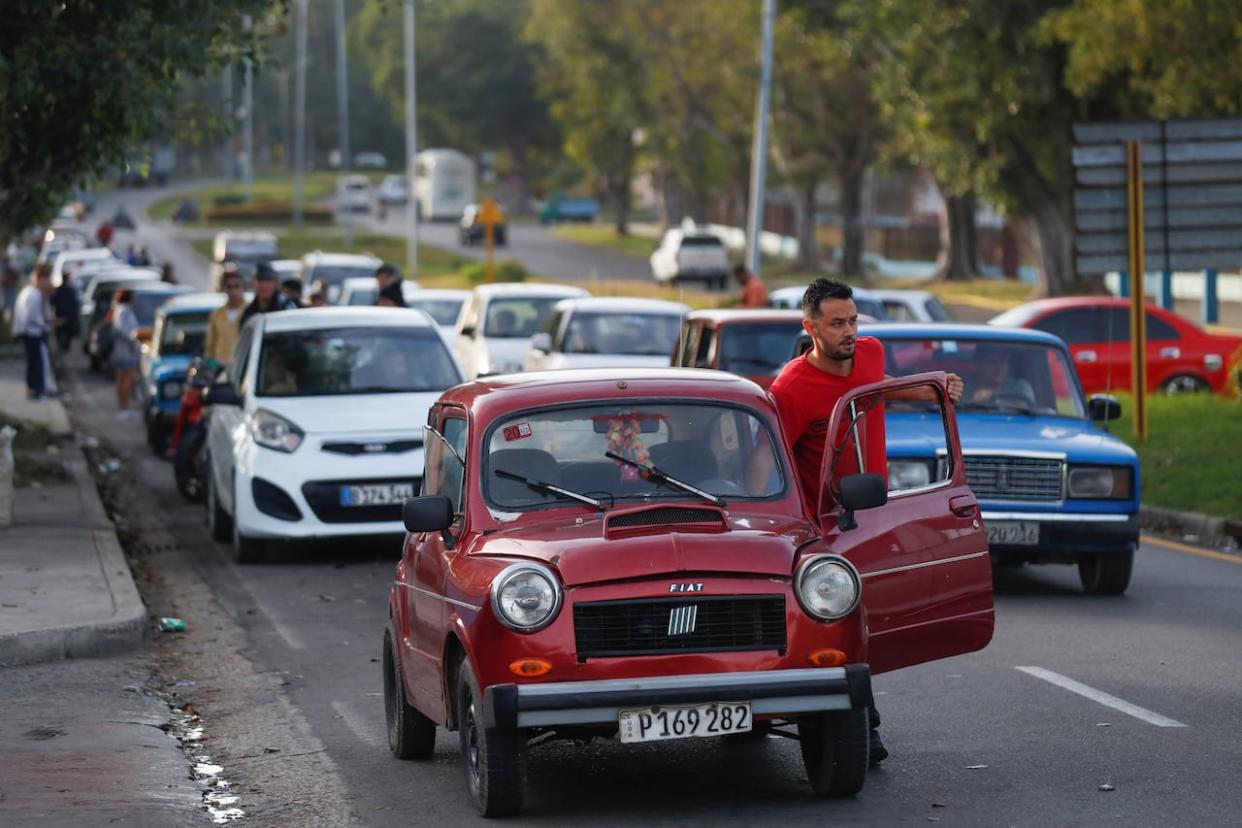
Whatever the weather in Cuba this February, people may be feeling gloomy about the cost of living.
The Cuban government is set to raise fuel prices fivefold at the start of next month. Havana says the move is a must, as it seeks funds to trim its deficit spending and buy needed goods from abroad.
The change is not expected to have much of an immediate impact on the costs of vacation packages for Canadians looking to get away to the popular Caribbean destination, but those travelling to Cuba's cities and towns might see the effects that the fuel hike — and the country's ongoing economic crisis — are having on Cubans.
Life is already hard for many as Cuba grapples with the economic crisis, food and medicine shortages, and inflation that economy minister Alejandro Gil pegged at 30 per cent at year's end. The pending jump at the pumps is yet another stress, as the cost of filling up a 40-litre tank with a popular gasoline blend will soon exceed the average monthly state salary.
"It's a considerable hike and I think it's going to be hard for us afterwards," said Javier Ernesto, a 33-year-old cab driver, who spoke to Reuters while waiting to fill up his car in Havana this week.
"People have the right to complain, especially when wages are not growing at the same rate," said Ricardo Torres Pérez, a Cuban economist and faculty fellow in the department of economics at American University in Washington, D.C.
The fuel hike comes during a peak season for tourism, as winter-weary Canadians look to escape the cold.
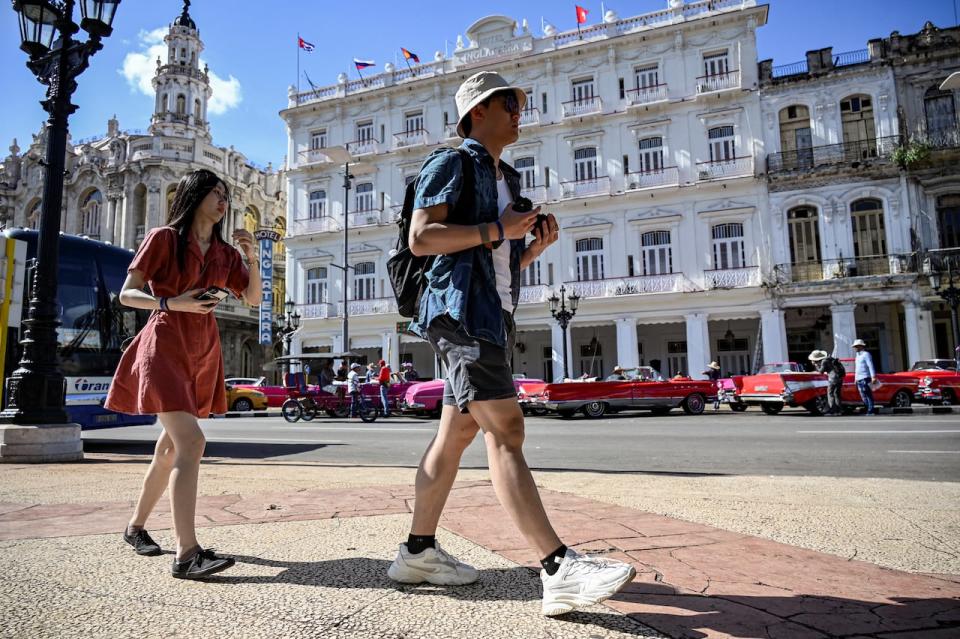
Tourists stroll along a street in Havana last month. Cuba relies heavily on tourism to pump foreign currency into its economy. (Yamil Lage/AFP/Getty Images)
Sun is an obvious part of Cuba's appeal, but so is price.
"Cuba offers what Canadians want," said Torres Pérez, noting that in addition to being an inexpensive place to visit, it's also a relatively short flight for some Canadian sun-seekers.
Moreover, deals can be found online for Canadian travellers, flying out of Toronto, to spend a week at a Cuban hotel during the month of February for less than $1,000 per person.
"That is incredibly inexpensive," said Rachel Dodds, a professor of hospitality and tourism management at Toronto Metropolitan University (TMU), saying that Cuba has historically been promoted and marketed "as the cheap place to go."
A need for dollars
Cuba is in need of foreign currency so it can import food, medicine, fuels and other necessities, amid what's been called the worst economic crisis in decades.
This has been exacerbated by the decades-long U.S. trade embargo, which outlaws American companies from doing business with Cuban interests and prohibits most Americans from travelling to Cuba.
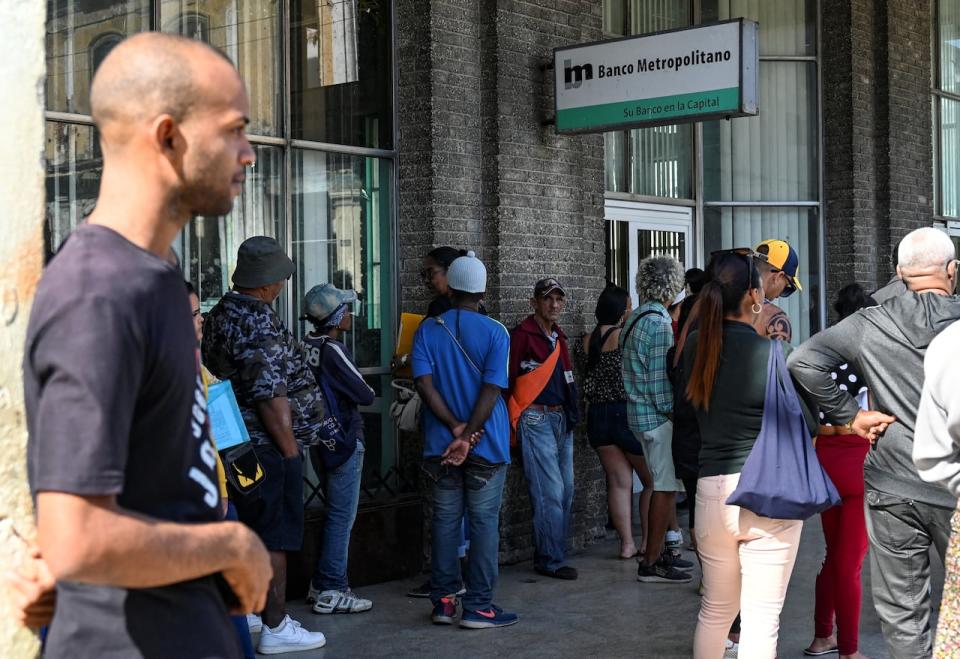
Cubans queue outside a bank in Havana last month. The country has been grappling with an ongoing economic crisis, rising prices and inflation that economy minister Alejandro Gil pegged at 30 per cent last year. (Yamil Lage/AFP/Getty Images)
The sale of fuel is one avenue for the government to collect that foreign currency, whether from tourists, private businesses or Cubans with access to U.S. dollars via remittances from relatives abroad.
To that end, the government is opening more than two dozen service stations that will only accept U.S. dollars for fuel.
Pedro Ducasse, a 28-year-old physician from Havana, gets paid in pesos. He's concerned that a setup where people with access to foreign currency can get what they need may create its own inequalities.
"I'm not against the rise in prices but the issue is that there should be fuel available for everyone," Ducasse told Reuters.
Tourists, on the other hand, can use the dollars in their wallet to buy gas for their rented cars.
How much dollar-centric revenue Havana can generate remains to be seen — especially with Cuba still seeing far fewer visitors than before the pandemic.
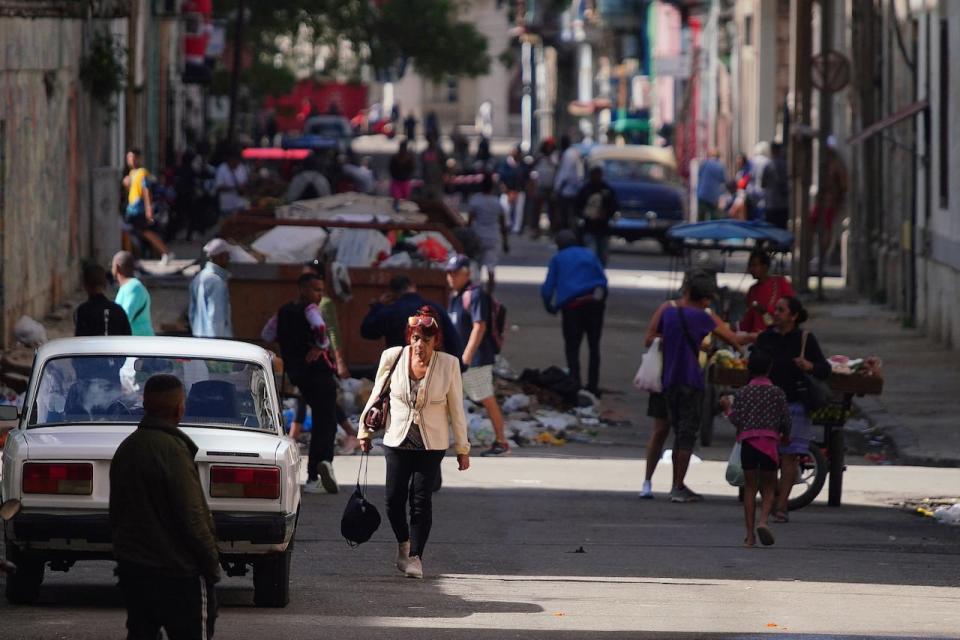
Canadians who travel to Cuba's cities and towns will see glimpses of what the people who live there are struggling with as a result of ongoing economic problems. Issues with garbage collection are one such example, as seen on this street in downtown Havana last month. (Alexandre Meneghini/Reuters)
More than one million people headed to Cuba from Canada annually in the pre-pandemic era. Global Affairs Canada says Cuban authorities reported more than 700,000 arrived from Canada between January and September of last year.
Torres Pérez said Canadians visiting Cuba's cities and towns will see what the people who live there are struggling with — as individuals and as a wider society — amid the ongoing economic crisis. Noticeable issues with garbage collection in cities like Havana are one such example, he said.
Ottawa advises travellers to "exercise a high degree of caution" in Cuba due to shortages of key necessities.
Canadians key for Cuba
Despite the coming changes to fuel prices, Torres Pérez does not expect the price of holiday packages to shift dramatically — in part because they are priced in currencies that aren't depreciating like the Cuban peso is.
He said the Canadian market is very important for Cuba and the government will likely want to protect it.
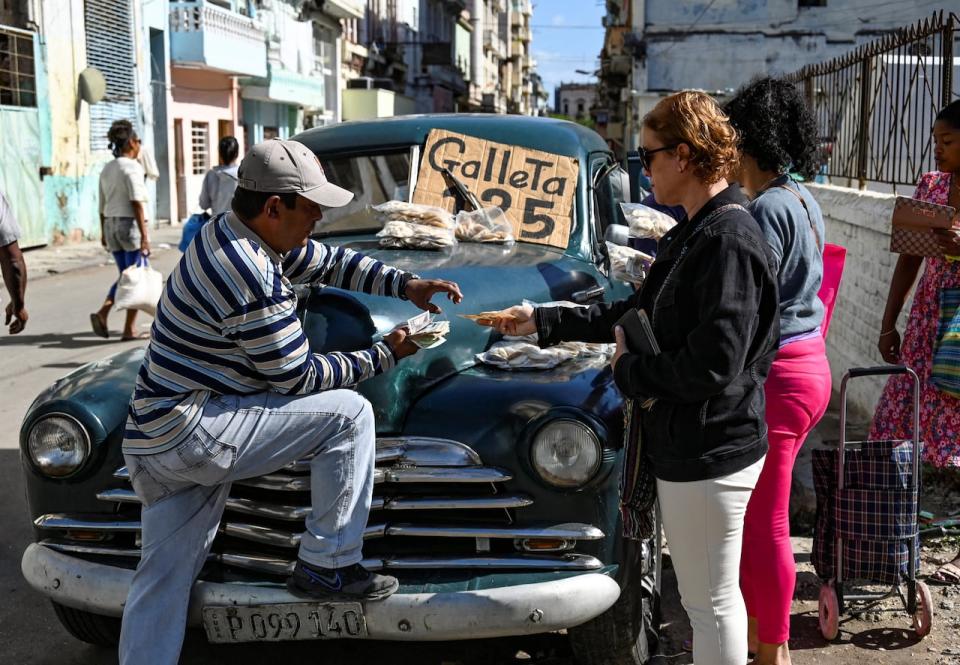
A man sells cookies from the hood of an old American car in Havana last month. (Yamil Lage/AFP/Getty Images)
Canadian airline and tourism operators signalled that changing costs are a part of being in the travel business.
An Air Transat spokesperson said the increase to fuel prices in Cuba is expected to have "a minimal impact on our airline and tour operator as it applies to gasoline and diesel."
Air Canada said it's "accustomed to managing fluctuating fuel prices around the globe and mitigating the impact." The airline further said its Cuba-bound planes are typically loaded with "more fuel than required to minimize the amount of fuel loaded onto the aircraft at the destination," for both cost and supply reasons.
But even if Canadian visitors to Cuban resorts were to see marginal price increases for food, drink and services while visiting the island, Dodds said they should remind themselves of their fortune to be on vacation as the people who live in the country struggle to afford basic necessities.
"If we can afford to go on holidays, we are very, very privileged in the first place," she said.


